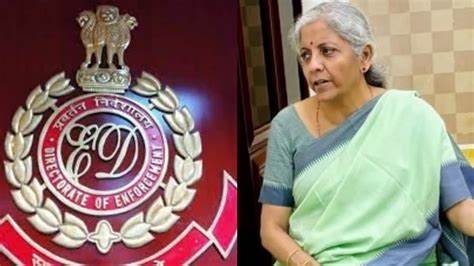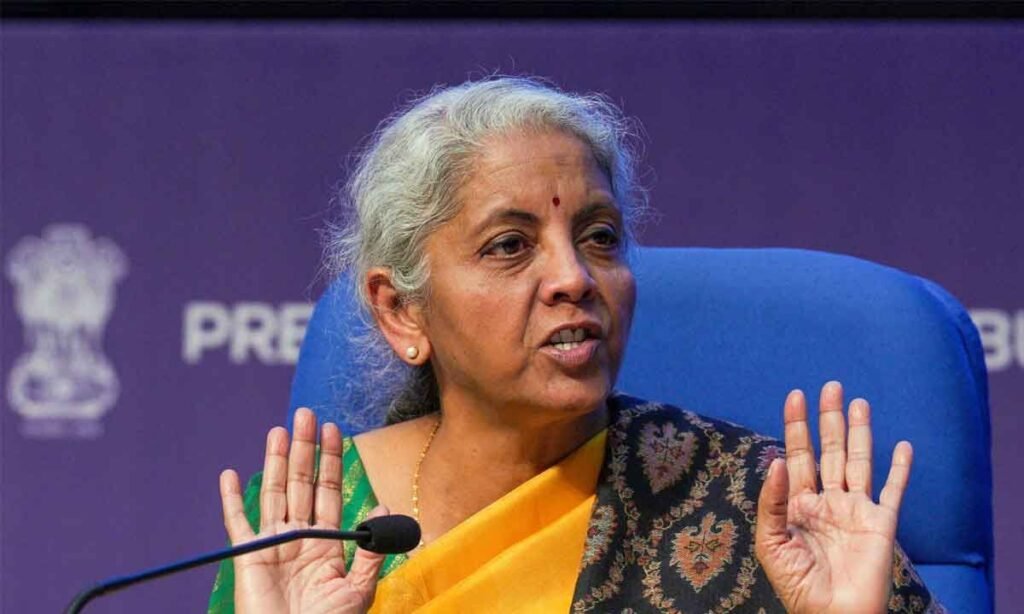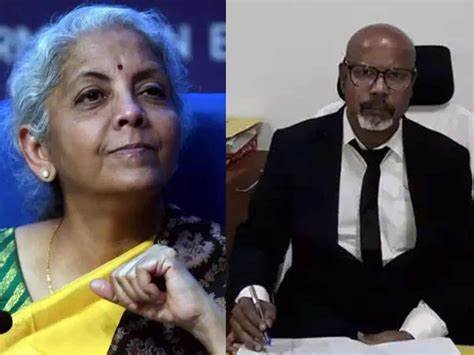In a recent report, an Indian Revenue Service (IRS) officer found himself suspended after demanding the dismissal of Finance Minister Nirmala Sitharaman. The incident has reignited discussions on the boundaries of civil servant conduct, political dissent, and the repercussions of public statements made by government officials. As the nation grapples with the implications of this disciplinary action, questions arise about the balance between freedom of expression and the responsibilities of public servants.
The controversy unfolded when Kannan Gopinathan, an IRS officer known for his activism and outspoken views on social issues, made headlines for his remarks against Finance Minister Nirmala Sitharaman. In a tweet, Gopinathan called for the dismissal of Sitharaman, citing alleged failures in managing the country’s economy and criticizing her handling of the COVID-19 pandemic. The tweet, which quickly went viral, triggered a heated debate on social media and drew sharp reactions from supporters and detractors alike.
Gopinathan’s comments against Sitharaman, a prominent figure in the Indian government, raised eyebrows within bureaucratic circles and sparked concerns about the appropriateness of his remarks as a civil servant. While civil servants in India enjoy the right to freedom of expression as private citizens, they are also bound by codes of conduct that require them to maintain political neutrality and refrain from making public statements that could be perceived as partisan or inflammatory. Gopinathan’s call for the dismissal of a sitting minister, therefore, raised questions about the line between personal opinion and professional responsibility.

The controversy surrounding Gopinathan’s remarks gained further traction when the Ministry of Personnel, Public Grievances, and Pensions initiated disciplinary proceedings against him, leading to his suspension from service. The decision to suspend Gopinathan, a vocal critic of government policies and a proponent of transparency and accountability, sparked outrage among civil society groups and activists, who viewed it as an attack on freedom of speech and dissent.
Critics of Gopinathan’s suspension argue that civil servants should be allowed to express their opinions on matters of public interest, even if they are critical of government policies or officials. They contend that dissent and debate are essential components of democracy and that civil servants have a duty to speak out against wrongdoing or injustice. Moreover, they argue that Gopinathan’s suspension sets a dangerous precedent that could discourage civil servants from voicing legitimate concerns or advocating for positive change within the government.

On the other hand, supporters of Gopinathan’s suspension argue that civil servants must adhere to strict codes of conduct and professionalism to maintain the integrity and impartiality of the bureaucracy. They contend that Gopinathan’s remarks crossed the line from personal opinion to political activism, violating established norms of behavior for civil servants. Moreover, they argue that public servants must exercise discretion and restraint when expressing views on sensitive or politically charged issues to avoid undermining public trust in the government.
The suspension of Kannan Gopinathan has reignited discussions on the role of civil servants in a democratic society and the boundaries of freedom of expression in the public sector. While civil servants have the right to hold and express personal opinions, they are also bound by codes of conduct that require them to uphold the principles of impartiality, professionalism, and political neutrality. The controversy surrounding Gopinathan’s suspension highlights the delicate balance between individual rights and institutional responsibilities within the civil service and underscores the importance of upholding democratic norms and values in governance.
As the debate over Kannan Gopinathan’s suspension continues to unfold, it serves as a reminder of the complex challenges facing civil servants in navigating the intersection of personal beliefs and professional obligations. While freedom of speech is a fundamental right in any democracy, civil servants must exercise caution and discretion when expressing views on matters of public interest, particularly when they involve political figures or policies. As India’s civil service grapples with these issues, it is essential to uphold the principles of accountability, transparency, and integrity to maintain public trust and confidence in the government’s ability to serve the interests of all citizens.

